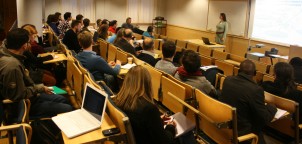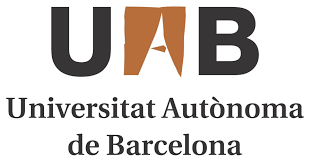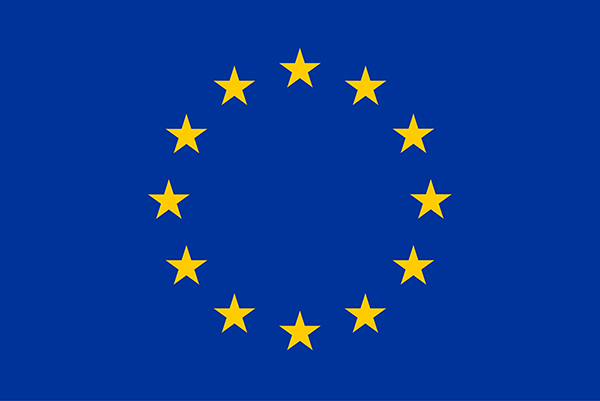
By Nick Meynen
Some 40 to 50 scientists and activists specialised in ecological debt (ED) and ecological unequal exchange (EUE) gathered on 27 and 28 March in Lund, Sweden. The workshop was organised by Professor Alf Hornborg from LUND University as part of the EJOLT project. Here are just a few insights and exchanges:
Rikard Warlenius from LUND University introduced the conference by explaining the link between the two topics: “Ecological unequal exchange is a concept developed by ecological economists that represents a net flow. Ecological Debt, a concept developed by activists, is the cumulative result of it.” The goal of the conference and the EJOLT project is to see how scientific approaches like EUE can advance the environmental justice struggles that Environmental Justice Organisations (EJOs) are fighting.
Professor Alf Hornborg explained how EUE and technological progress are two sides of the same coin: most technological progress increases EUE. He cited the example of imperial Britain in the 19th century where the industrial revolution was totally dependent on a huge rise in EUE; the UK appropriated resources from an area between 10 and 15 times bigger than its own territory – such as cotton fields in the US. This anecdote from history has present-day relevance because most of us still see technological advances as the main pathway to sustainability – while we usually tend to forget how the new machine will work and on what new EUE it will depend on.
Then Andreas Mayer presented hard figures on these claims of EUE. Andreas calculated the total accumulated material flows since 1950, for each world region. He found that the EU and Eastern Asia are the biggest importers, while North Africa, West Africa and Russia are mostly exporters. Especially the EU is an importer – often the biggest of all world regions -in every aspect of global material flows that Andres quantified: biomass, fossil fuels and metals. North America, the EU and East Asia have consumed and accumulated a lot more than other regions and much more than they have extracted domestically. Which means that statistically, material flow analysis has shown that ecologically unequal exchange on a global scale, which causes an ecological debt as a cumulative result, does exist.
What does this all mean in terms of how the global economy should run? Well, apparently some academics do also spend time in going from analysis of the problem to finding the solution. Hornborg: “As we can’t change the 2nd law of thermodynamics, we will have to change our economy. Can money compensate for entropy, the disorder generated by any transformation process? No, it can displace it, move it around, but it cannot be compensated. So that is what the current economy does: it dispaces the disorder to the places without power.” When Alf was then asked what the alternative was, he came up with the idea to combine three ideas; basic income, complementary currency and reduced working time. The government could give all citizens a special bank card with their basic income in local currency on it, which can only be used for buying local or regional products. That creates a drastic shift in demand: away from import and towards local self-sufficiency.
Another inspiring moment came when Professor Andrew Jorgenson spoke about his statistical analysis on carbon emissions. Nations that are most integrated in the world, with a lot of Environmental INGOs, have decreased the effect of development (GDP growth) on carbon emissions between 1970 and 2010 – while it increased in countries that have the least Environmental INGOs. This answers an important question raised by many people that are skeptical of the influence of Environmental INGOs. It was suggested that it would be good to make a distinction between types of Environmental INGOs, with for example the environmental justice organisations as a separate group. Our hope is that with the growth of the Atlas of Environmental Justice and the filter functions that we offer, Andrew will have a great new dataset to use for this sort of analysis.





Hello, a quick correction: In the statistical analysis that you describe, I included only Environmental INGOs. The nice suggestion from someone in the audience was to consider conducting additional analyses where I differentiate between different types of Environmental INGOs.
Best wishes,
Andrew Jorgenson
thanks for the small but important correction, I added the word ‘environmental’ before INGO – everywhere in the text. Your message was very important and I hope that one day you will be able to follow up on Patrick Bond’s suggestion to look at environmental justice organisations in particular (knowing that this will be more difficult).